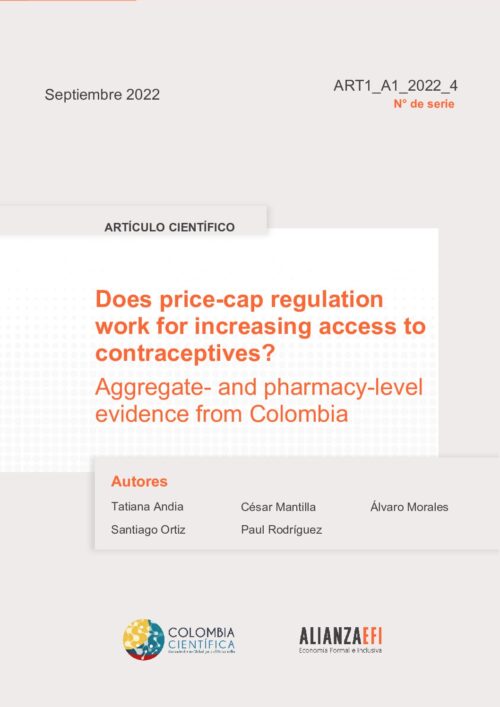Price caps through international reference pricing are widely used worldwide but not so commonly in over-thecounter markets. We study the short-term effects of a price cap regulation for oral contraceptives in Colombia, a market dominated by the presence of several branded generics with multiple active ingredients. Most of the regulated products were fourth-generation contraceptives, and the Colombian health benefits plan only covers second-generation ones, resulting in a de facto over-the-counter market. Our aim is to establish whether the regulation triggered a competitive response within and across product categories, by price levels and regulatory status. The panel data analysis of quarterly level data for 52 drugs (and 79 drugs in an expanded sample without transactions for some quarters) reveals a massive expansion of transactions, for the directly regulated products that were formerly the most expensive, and for the indirectly regulated (i.e., a regulated ingredient) among those with an intermediate price. Although this price reduction could have led to a crowd out of the publicly provided contraceptives, we show that this is not the case. Since the information system cannot trace the final consumers’ purchases, we complement our analysis with an audit study involving 213 pharmacies in Bogota. We find that the price reduction was effectively transmitted to the final consumers.
Autores:
- Álvaro Morales
- César Mantilla
- Paul Andrés Rodríguez Lesmes
- Santiago Ortiz Ortiz
- Tatiana Andia
Palabras clave:
- Contraceptive Pills
- Drugs
- Pharmaceuticals
- Pharmacies
- Simulated Clients
Categorías:
- Proyecto 1
- Publicación
